Common applications for ceramic tiles include floor, wall, worktop, kitchen backsplash, and bathroom. An elegant home owner tends to utilize ceramic tiles in every room of his/her house. Ceramic tiles have a firm, hard surface that does not gather or keep allergens such as dust, pollen, or grime.
Ceramic tiles are a favorite among both homeowners and tile professionals. This is due to its ageless beauty and extensive design potential. While ceramic floor tiles are growing in popularity in the world, it is essential to note that each type of tile has its own benefits and drawbacks.
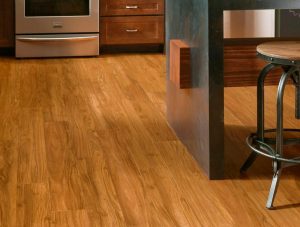
Ceramic tiles are very durable, long-lasting, and abrasion-resistant. If correctly installed and maintained, the tiles can last up to twenty years or even longer. Even if a single tile breaks, it is usually the result of a hard impact, and repairing a single tile is simple. Because you will not need to often replace tiles, you will be able to keep your total expenses low.
The low maintenance needs of tile flooring are one of its most appealing qualities. The surface will not collect any stains, dirt, or liquids, making it simple to clean. Using a broom or a vacuum with a gentle brush attachment, sweep or vacuum the floors to remove any loose dirt and grime.
If stains do occur, almost any cleaning product may be used to eliminate them without affecting the tile flooring. Consequently, many homeowners choose ceramic tile for their kitchens and bathrooms. Another advantage of ceramic tile flooring is its water resistance.
The ceramic tiles’ stain- and water resistance is enhanced with a protective coating; this is especially important in bathrooms and kitchens, where the ceramic tile will outlast other materials. It can also withstand high amounts of humidity, so it will not be ruined during the summer’s hot and humid months. Ceramic tiles are appropriate for humid climates of all types.
Kitchen tiles
With so many designs, textures, and color options available on the market to suit your preferences and budget, selecting the appropriate kitchen tiles for your family may be challenging. Typical kitchen tile materials include ceramic, porcelain, vitrified, glazed vitrified, and others.
The tile’s durability, functionality, and aesthetic appeal will be greatly affected by the material used to create it. Due to their adaptability, sturdiness, low cost, and appealing look, ceramic tiles have been a widely valued material for interior design for decades. Ceramic tiles, which are available in a wide variety of hues, designs, patterns, and textures, are popular in contemporary kitchens.
Glazed, unglazed, glossy, ultra-glossy, and matte finishes are available for ceramic tiles. They are available in an unlimited variety of styles, patterns, and textures. Like everything else in the world, ceramic tiles have benefits and downsides. Due to the multiple benefits of ceramic tiles in both commercial and residential settings, they are the best and most popular option for contemporary kitchens.
A kitchen is one of the most highly traveled rooms in a home or company, thus tiles with a high stiffness rating are necessary to ensure durability. For a residential kitchen, a stiffness rating of four is necessary, however, a rigidity grade of five is required for commercial kitchen tiles, which is only possible with ceramic tiles.
Therefore, ceramic tiles are the best option for both residential and commercial kitchens. In addition to rigidity ratings, flexibility, water and stain resistance, durability, and an inexpensive price make ceramic tiles the best solution for kitchen walls and floors.
Ceramic tiles’ impermeable, impervious surface makes them resistant to water and moisture, making them less susceptible to bacteria and mold. Therefore, ceramic tiles are perfect for moist spaces such as the kitchen and bathroom. Ceramic tiles need minimal maintenance and offer a hygienic and germ-free environment, which is necessary for a kitchen.
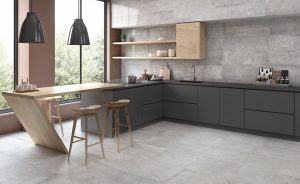
Ceramic tile kitchen backsplash
Most people are ignorant of the best material for a kitchen backsplash, despite the fact that the backsplash is an important but sometimes overlooked element of a kitchen renovation. It is supposed to compliment the countertop, coordinate with the flooring and cabinetry, and act as the area’s main point.
Buying Advice for Selecting the Finest Tile for Your Kitchen Backsplash. Most people are ignorant of the best material for a kitchen backsplash, despite the fact that the backsplash is an important but sometimes overlooked element of a kitchen renovation.
I’ve seen people utilize wide field tiles as backsplashes, but I wouldn’t recommend it due to a lack of creative design. If you like a minimalist appearance with few grout lines, choose a larger field tile. If you choose a mesh-mounted mosaic (as shown), you have an abundance of amazing alternatives that may replicate virtually any desired aesthetic.
Here is a backsplash mosaic that simulates the appearance of genuine slate without the maintenance and fear of the tile eroding, peeling, or cracking over time. Prior to picking a backsplash material for your kitchen, you should examine your lifestyle.
By itself, this will decide the optimal material for your backsplash. Then you may determine what appearances you like. Thus, you will have something that is both lovely and functional. Therefore, if you do not usually entertain or cook, you may use virtually any item you like.
However, if you cook every day, you should avoid materials that require more maintenance over time, such as natural stone. Glass tiles for a kitchen backsplash are increasingly gaining popularity, and for good reason: they are available in an infinite number of sizes, colors, and mesh-mounted mosaics, are incredibly easy to clean and can make a backsplash stand out.
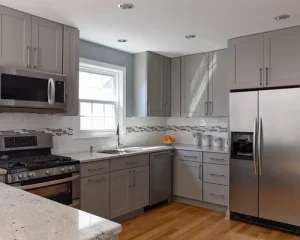
Floor tiles
There are both benefits and drawbacks associated with laying floor ceramic tiles. This material is stain-, mold-, and water-resistant and may be employed in a number of environments. Due to the hardness of the tile, some attributes will not function in particular locations.
Knowing the advantages and disadvantages of tile flooring will help you decide if it is the best option for you. One of the advantages of tile flooring that consumer’s value is its low maintenance requirements. If stains, dirt, or liquids land on it, they will not be absorbed and will remain on the surface.
This renders them easy to clean or remove. You may keep them clean by regularly vacuuming with a soft brush attachment or brushing any loose debris and dirt off the floor. If stains do emerge, almost any cleaner may be used to remove them without harming the tile flooring.
Consequently, many folks prefer to install ceramic tile in their kitchens and bathrooms. The floor will not support the growth of bacteria, making it easier to clean. This is useful for operating a business that provides a public service, such as a restaurant. Another benefit of tile flooring is its resistance to water. The material includes a protective coating that renders it water- and stain-resistant.
This is especially important in bathrooms and kitchens, where the ceramic tile will outlast other materials by a substantial margin. It is also resistant to high levels of humidity, so you won’t have to worry about it deteriorating during the hot and humid summer months.
Ceramic tiles are advantageous in any humid climate. If you acquire unglazed tile, you will need to seal its surface to protect it from liquids. Ensure that the grout lines between the tiles are sealed, as they are susceptible to moisture. Otherwise, water can penetrate deeply into the tiles, threatening to undermine their installation and promote mold development. This can result in costly difficulties in the future that you will have to deal with.
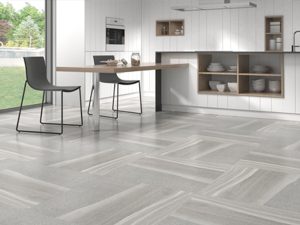
Ceramic tiles
Ceramic tiles are highly diverse, with options ranging from the look of real stone to solid colors in a number of sizes. As you may have noticed in your search for ceramic tile, ceramic tile may be used to create a variety of unique patterns. This section will cover a few ceramic tile trends.
Stone is very fashionable in kitchen and bathroom design. Stone is beautiful, but it comes at a cost that not everyone can afford. Natural stone-appearing ceramic offers all the design aesthetics of stone without the prohibitive cost. Using contemporary ceramic printing techniques, natural stone patterns can be remarkably lifelike.
While hexagons and other tile shapes are common, most tiles are rectangular or square. To produce “rectified” tile, manufacturers use machines that produce precise, uniform edges. Larger tiles are more prevalent in modern interior design trends than smaller ones.
There are three types of ceramic tiles: glazed tiles, wall tiles, and floor tiles. The protective finish of glazed tiles can range from matte to glossy. In the vast majority of instances, matte finishes are ideal for natural stone designs. Ceramic tiles with a glossy sheen give a space a refined appearance (pun intended).
Recommended for wall installations are glossy finishes. Showers, backsplashes, and accent walls are a few examples of where wall tiles may be utilized. Wall tiles, with their numerous tile styles, may add a very appealing design element to a room.
Additionally, they are offered in the same sizes as floor tiles. As noted earlier, floor tiles often have a matte look. When you find a ceramic tile you like, be careful to ask if it is suitable for floor installation. Ceramic tile may be quite resilient when used as flooring.

Spanish tiles
The term “Spanish tiles” refers to a wide variety of ceramic tiles with traditional Spanish and Mexican designs. Due to the popularity of Spanish tiles, many buyers may request them based solely on their appearance, without specifying the material, size, or color. If you intend to use Spanish tiles in a home improvement project, keep in mind that traditional Spanish tiles are handcrafted.
- Resources. These tiles may be crafted from either clay or ceramics. This indicates that homeowners now have more options for the durability, strength, and longevity of their roof tiles following installation.
- Style. Remember that traditional Spanish and Mexican designs frequently feature an explosion of colors and shapes. Consider red, blue, and yellow starbursts, flowers with abstract petals that extend outward, and geometric patterns reminiscent of Spanish and Mexican baroque churches.
- Widely employed Spanish tiles can impart vibrant color and a unique atmosphere wherever they are installed. Frequently, walls and floors are covered with decorative and intricately patterned tiles. The addition of Spanish tiles in the middle of the living room floor or on a feature wall can frequently add flair to a room. Additionally, Spanish tiles work well as patio flooring and garden paths.
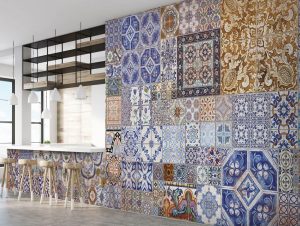
Bathroom floor tiles
There is a wide selection of materials, designs, and colors for bathroom tiles, but not all are suited for the floor of moist regions. When installing bathroom tiles, vitreousness, or the tile’s propensity to absorb water, is an essential factor to consider.
All bathroom tiles should have a high coefficient of friction to prevent slipping. Use this overview of 14 common bathroom tile selections, along with maintenance tips and bathroom tile ideas, to help you choose the best material for your space. Cement-bodied tile is a non-vitreous, extremely durable tile manufactured from cured sand and mortar.
Other cement tiles have smooth surfaces. Additionally, there is a vast selection of vibrant geometric designs that make a statement on floors and walls. After sealing, cement tiles can be cleaned using non-acidic cleaning agents, such as those designed for natural stone.
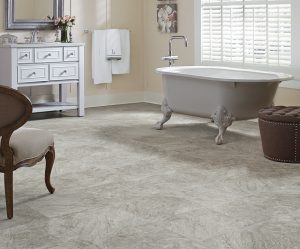
Ceramic and porcelain tiles are produced by pressing a clay mixture into a mold and firing it at high temperatures in a kiln. Glazed, this material makes an outstanding bathroom tile. These popular tiles, including the classic 3×6-inch subway tile, are available in a vast array of colors, patterns, shapes, and sizes, making tile design almost endless. A wide variety of ceramic tiles are available in our company to receive the samples contact our sales agents.
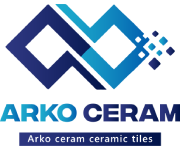
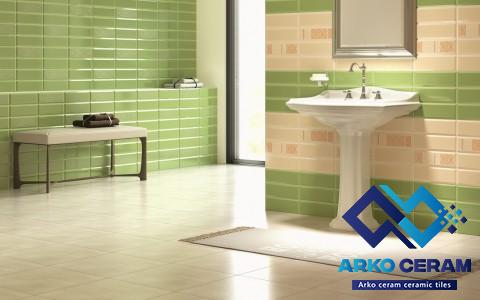
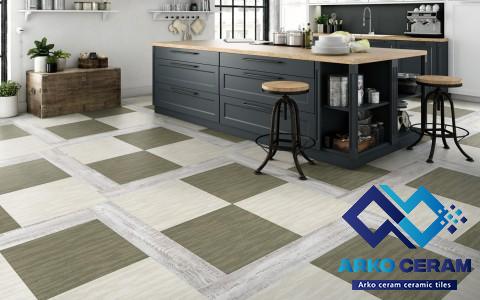
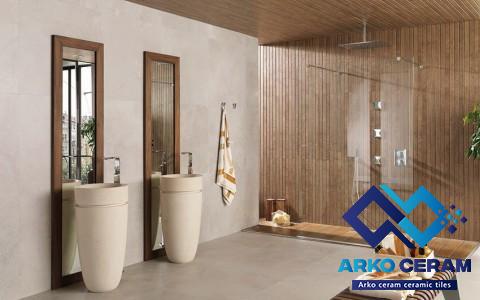
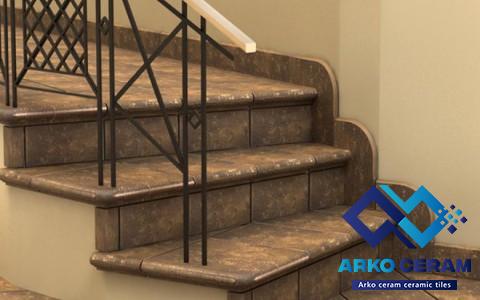
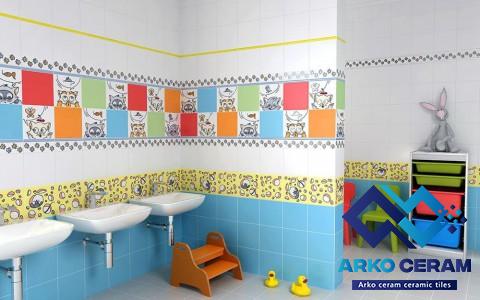
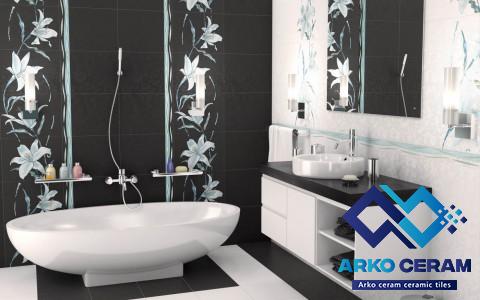
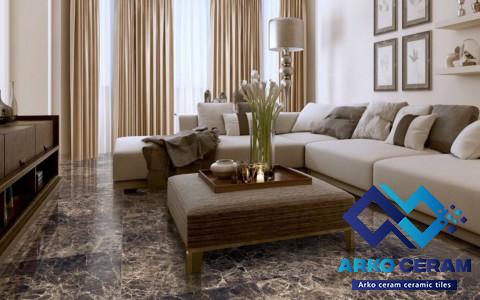
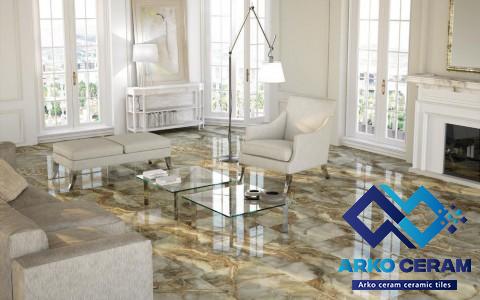
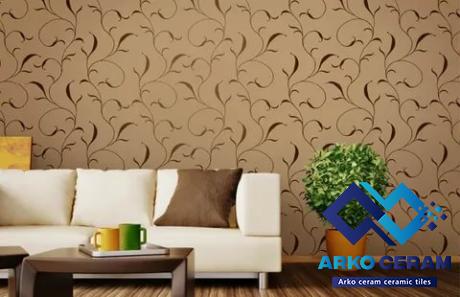
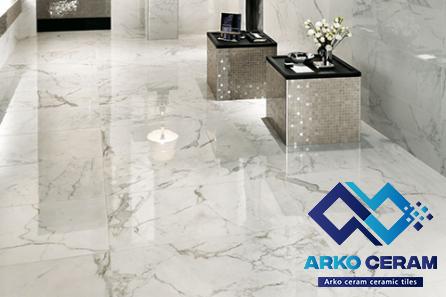
Your comment submitted.